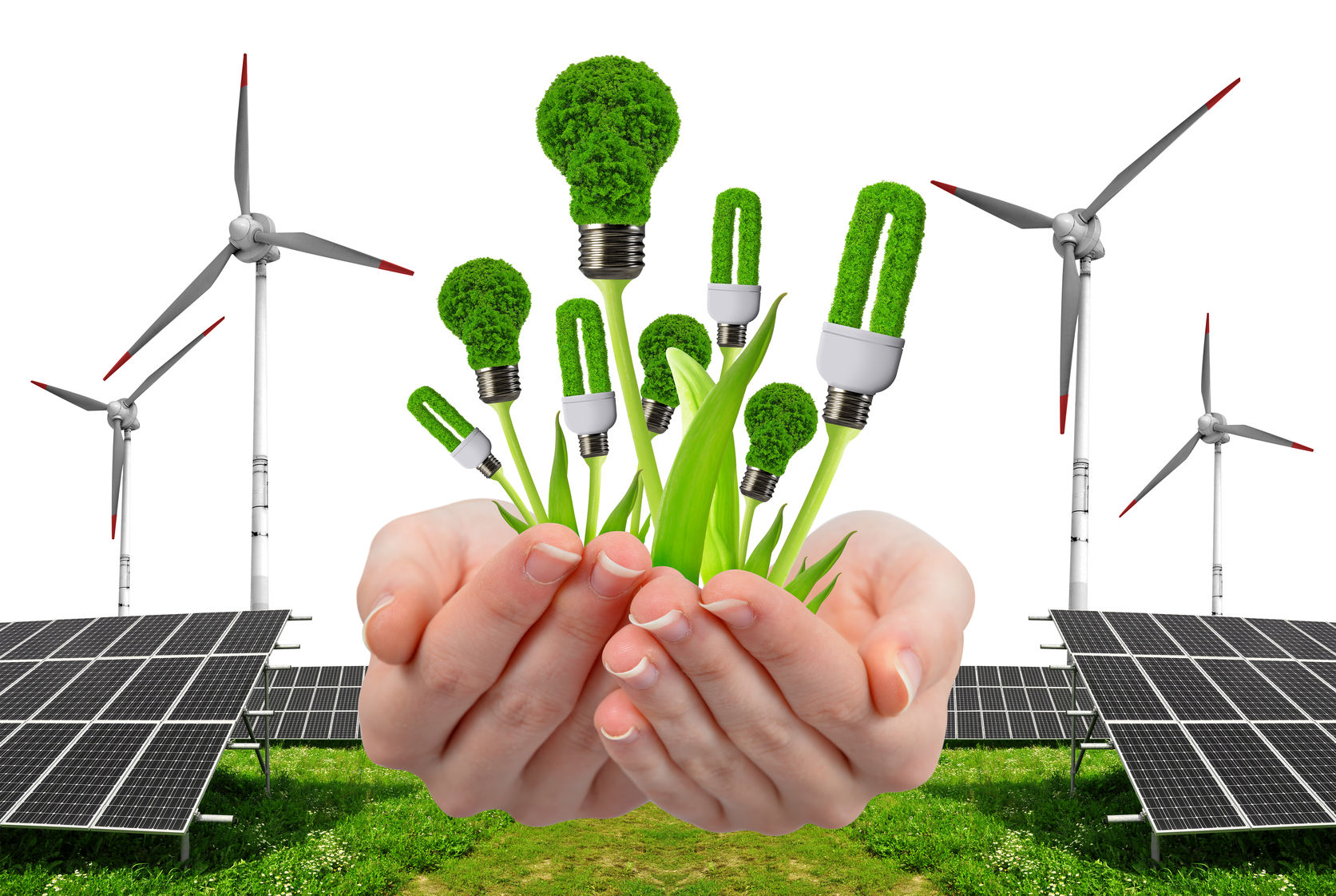Green Entrepreneurship, Pushing the Sustainability Development, Improving Quality of Life and Transforming Urban and Rural Areas Reality
Prof. Aécio D’Silva, Ph.D.
AquaUniversity
Green businesses is a term that refers to any business that runs in a way that minimizes its negative impact on the environment while maximizing its positive impact on society. Green business can be a catalyst for economic, social, and environmental change, by creating jobs, micro-business, and entrepreneurship, pushing sustainability development, improving quality of life, and transforming urban and rural areas reality. In this Collaborative Intelligence post, we will explore the benefits, challenges, and opportunities of green business, and how it can contribute to a more sustainable and inclusive future.
The world is facing unprecedented challenges, such as overpopulation, biodiversity loss, resource depletion, poverty, inequality, and health crises. These challenges require urgent and collective action from all stakeholders, including governments, businesses, civil society, and individuals. Business, as a major driver of economic activity, innovation, and consumption, has a crucial role and responsibility to play in addressing these challenges, and in creating value for society and the environment, not just for shareholders.
Green businesses is a way of doing business that embraces this role and responsibility, and that looks to create positive impacts for the triple bottom line: people, planet, and profit. Green business can be defined as any business that:
- Reduces its environmental footprint, by using resources efficiently, minimizing waste and pollution, and adopting clean and renewable energy sources.
- Enhances its social impact, by providing decent and fair employment, supporting local communities, and promoting human rights and well-being.
- Increases its economic performance, by creating competitive advantages, reducing costs and risks, and accessing new markets and opportunities.
Green businesses can be a catalyst for economic, social, and environmental change, by creating jobs, micro-business, and entrepreneurship, pushing sustainability development, improving quality of life, and transforming urban and rural areas reality. Here are some examples of how green businesses can achieve these outcomes:
Green Businesses – Creating jobs
Green businesses can create jobs, both directly and indirectly, by generating demand for green products and services, and by stimulating green innovation and entrepreneurship. According to the International Labour Organization, the transition to a green economy could create 24 million new jobs by 2030, in sectors such as renewable energy, energy efficiency, waste management, and organic agriculture.
Green jobs can also be more decent and inclusive, as they tend to offer higher wages, better working conditions, and more opportunities for women and youth. [1,2]
Green Businesses – Products and services
Green products and services are those that meet the needs and preferences of consumers while reducing their environmental impact and enhancing their social benefits. Green products and services can create jobs by increasing the demand for green skills, such as design, engineering, installation, maintenance, and marketing. For example, the global market for organic food and beverages is expected to reach $320 billion by 2025, creating jobs for organic farmers, processors, distributors, and retailers. [3]
Green innovation and entrepreneurship
Green innovation and entrepreneurship are the processes of developing and implementing new or improved solutions that address environmental and social problems while creating economic value. Green innovation and entrepreneurship can create jobs by fostering creativity, experimentation, and collaboration, and by attracting investment and support. For example, the Global Cleantech Innovation Index ranks countries based on their potential to produce entrepreneurial cleantech start-ups that can commercialize clean technology innovations. The index shows that countries such as Finland, Israel, and Sweden have elevated levels of green innovation and entrepreneurship, which can translate into job creation and economic growth.
Green Businesses – Creating micro-business
Green businesses can create micro-business, which are small-scale enterprises that typically employ less than ten people, and that operate in the informal or semi-formal sector. Micro-business can provide income and livelihood opportunities for low-income and marginalized groups, such as women, youth, and rural populations, who often face barriers to accessing formal employment or entrepreneurship. Green businesses can support the creation and development of micro-businesses, by providing training, mentoring, financing, and market access, and by enabling them to adopt green practices and technologies.
Green training and mentoring
Green training and mentoring are the provision of knowledge, skills, and guidance to help micro-business owners and workers to start, grow, and sustain their green businesses. Green training and mentoring can help micro-businesses to improve their productivity, quality, and profitability, and to comply with environmental and social standards and regulations. For example, the Green Jobs Programme of the International Labour Organization provides green training and mentoring to micro-businesses in various sectors, such as construction, tourism, and waste management, in countries such as Bangladesh, Brazil, and Kenya.
Green financing and market access
Green financing and market access are the provision of financial and non-financial resources and opportunities to help micro-businesses access and compete in the green market. Green financing and market access can help micro-businesses overcome the challenges of limited capital, excessive costs, and low demand, and to benefit from the incentives and preferences of green consumers and investors. For example, the EcoMicro Programme of the Multilateral Investment Fund and the Nordic Development Fund provide green financing and market access to micro-businesses in the renewable energy and energy efficiency sectors, in countries such as Chile, Colombia, and Mexico.
Green practices and technologies
Green practices and technologies are the adoption and use of methods and tools that reduce the environmental impact and enhance the social benefit of micro-business activities. Green practices and technologies can help micro-businesses to save costs, increase efficiency, improve quality, and to comply with environmental and social standards and regulations. For example, the Switch Africa Green Programme of the European Union and the United Nations Environment Programme provide green practices and technologies to micro-businesses in the agro-food, manufacturing, and tourism sectors, in countries such as Ghana, Kenya, and Uganda.
Green Businesses – Creating entrepreneurship
Green business can create entrepreneurship, which is the process of identifying and exploiting opportunities to create value by solving environmental and social problems while generating economic returns. Entrepreneurship can foster innovation, competitiveness, and growth, and can contribute to the development of new industries and markets. Green business can stimulate and support the creation and development of entrepreneurship, by providing education, incubation, acceleration, and networking, and by creating an enabling environment and ecosystem.
Green education
Green education is the provision of formal or informal learning opportunities to develop the knowledge, skills, and attitudes necessary to pursue green entrepreneurship. Green education can help entrepreneurs acquire the technical, business, and sustainability competencies required to identify and exploit green opportunities, and to overcome the challenges and risks involved. For example, the Green Entrepreneurship Academy of the Global Green Growth Institute provides green education to entrepreneurs in the green energy, green building, and green transport sectors, in countries such as Indonesia, Mongolia, and Rwanda. [4, 5, 6]
Green incubation and acceleration
Green incubation and acceleration are the provision of comprehensive and tailored support services to help entrepreneurs start, grow, and scale their green businesses. Green incubation and acceleration can help entrepreneurs to access resources, such as mentoring, coaching, training, funding, and facilities, and achieve milestones, such as product development, customer validation, and market entry. For example, the Climate-KIC Accelerator of the European Institute of Innovation and Technology provides green incubation and acceleration to entrepreneurs in the climate innovation sector, in countries such as France, Germany, and the United Kingdom.
Green networking
Green networking is the provision of opportunities and platforms to connect and collaborate with other entrepreneurs, stakeholders, and actors in the green business ecosystem. Green networking can help entrepreneurs to access information, advice, feedback, and referrals, and to build relationships, partnerships, and alliances. For example, the GreenBiz Network of GreenBiz Group provides green networking to entrepreneurs in various green sectors, such as clean technology, circular economy, and sustainable finance, through events, webinars, and newsletters.
Green environment and ecosystem
Green environment and ecosystem are the conditions and factors that influence and enable the emergence and development of green entrepreneurship. A green environment and ecosystem can help entrepreneurs to operate in a favorable and supportive context, where they can access opportunities, incentives, and resources, and where they can face low barriers, challenges, and risks. For example, the Global Green Economy Index of Dual Citizen ranks countries based on their green environment and ecosystem, using indicators such as leadership, policy, investment, and innovation.
Green Businesses – Creating Shared Value
Creating shared value is the process of generating economic value for green business, while also creating social and environmental value for its stakeholders and society.
Creating shared value arises from strategies and actions that not only enhance competitive advantage but also uplift the communities where a company operates.
There are three primary avenues through which companies can foster shared value: by reimagining products and markets, redefining productivity along the value chain, and bolstering local clusters. If businesses could actively promote social progress globally, we would see a decline in poverty, pollution, and disease, alongside an increase in corporate profits. In recent times, the notion of creating shared value—wherein financial success aligns with societal benefits—has become crucial for corporations for a couple of reasons. Firstly, there’s been a growing skepticism surrounding the legitimacy of business operations, with corporations often perceived as thriving at the expense of wider society.
Concurrently, many of the world’s most pressing challenges, ranging from income disparities to environmental degradation, demand solutions that use the expertise and scalable models of the private sector. As a result, even companies previously known for their profit-centric approaches are now embarking on significant shared value endeavors.
In conclusion, green business is a term that refers to any business that runs in a way that minimizes its negative impact on the environment, while maximizing its positive impact on society. Green business can be a catalyst for economic, social, and environmental change, by creating jobs, micro-business, and entrepreneurship, pushing sustainability development, improving quality of life, and transforming urban and rural areas reality. Green businesses can achieve these outcomes by adopting and applying top sustainable technologies, such as smart city technologies and green technologies, which can help them address some of the most pressing issues they face, such as pollution, air quality, energy security, mobility, health, education, and safety. However, green business also faces some challenges and risks, such as cost, complexity, acceptance, ethics, and consequences, which need to be addressed and mitigated. However, these challenges and risks also present opportunities and incentives for green businesses to overcome them and to use the benefits of sustainable technologies. Green business can also contribute to the achievement of sustainability, by creating shared value for its stakeholders and society. Green business is the key to creating a more sustainable and inclusive future for all.
References:
[2] https://www.nerdwallet.com/article/small-business/sustainable-business-ideas.
[3] https://www.mckinsey.com/capabilities/sustainability/our-insights/building-a-green-business-lessons-from-sustainability-start-ups.
[4] https://www.nerdwallet.com/article/small-business/sustainable-business-ideas
[5]https://www.mckinsey.com/capabilities/sustainability/our-insights/accelerating-toward-net-zero-the-green-business-building-opportunity
[6] World Employment and Social Outlook 2018 – Greening with jobs
[7] Green Jobs for a Revitalized Food and Agriculture Sector.
[8] Organic Food and Beverages Market by Product Type and … – Allied Market Research.
[9] Global Cleantech Innovation Index 2017 – Cleantech Group
[10] Green Technology: An A-to-Z Guide | SAGE Publications Inc.
[11] Green Buildings – World Green Building Council
[12] Green Roofs and Walls | City of Melbourne.









